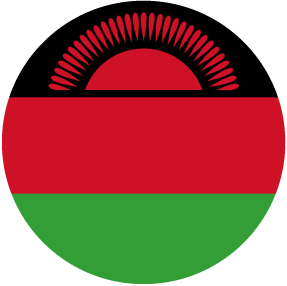Flagship programs serve as pivotal mechanisms for attracting agricultural and food investments. These programs must be tailored to specific developmental contexts, mirroring national necessities and fostering synchronized multi-tiered actions and partnerships.
The reviewed period emphasized grassroots customization, leveraging state capability indicators and broadening flagship mobilization methods. This was complemented by an accelerated expansion in the sector, offering specialized support across agricultural systems, and utilizing a remote delivery model to assist governments.
Diagnostic - Improving Baselines:
---
- Investigated the status of eight focus countries using the GRAT tool developed in partnership with the Tony Blair Institute.
- Produced eight country-specific reports and one synthesized report.
Advisory - Convening and Coordination
---
- AGRA, as a primary sector convener, emphasized the formation and scaling of flagship mobilization mechanisms, like steering committees, technical groups, and innovation platforms for specific crops.
- Highlighted example: Tanzania's Technical Working Group on Agro-industrialization is now a thematic group under the ASDP II, emphasizing its value addition and commercial component.
- AGRA fostered sector-wide coordination through the Agriculture Sector Working Group and the initiatives of PIATA partners.
- For the AGRF Deal Room, multi-institutional teams were convened in each country, promoting enhanced collaboration and knowledge exchange among stakeholders.
Development-New Flagships
AGRA units collaboratively developed Food Systems Strategies for Ghana, Rwanda, and Malawi, attracting private sector interest. They established coordination frameworks in four countries and supported Ethiopia's rice and oil seed flagship programs, integrating new areas in AGRA's strategy.

Nigeria – BAGS flagship off to a rapid start
In May 2022, Kaduna State, led by Governor Nasir Ahmad El-Rufai, approved and funded the BAGS program aimed at boosting smallholder farmer productivity and market access. The program, supported by over USD 20 Million in funding, integrates digital platforms and focuses on value chain improvements for crops like maize, soya, and ginger.

Malawi – Women and youth flagship creates new business linkages and enhances technology uptake
Malawi's 10-year program aims to empower women and youth in agriculture, enhancing value chains and creating business linkages, with significant governmental and private sector backing, including digital hubs for youth.

Tanzania – TAIDF expected to leverage USD2.7 billion in agro-industrial investments
Tanzania's Agro-industrialization Flagship aims for economic transformation, targeting 32.2M people by 2025 with a $320M seed investment, expected to leverage $2.67B in private sector funding and create 1M jobs.

Burkina Faso – Balanced meals for school children
AGRA backs Burkina Faso's initiative to provide balanced meals for schoolchildren, integrating local production to boost producer income and enhance school canteen quality. The collaboration has seen growth and improved governance in 2022.

Ethiopia- Support to the National Rice Flagship Program
AGRA aided the National Rice Flagship Program by refining its implementation and conducting feasibility studies on local rice production and its potential to replace imports.

Ghana - Planting for Export and Rural Development (PERD-TCDA)
In Ghana, AGRA and IFC partnered to digitise TCDA's value chain and develop a strategic plan, enhancing TCDA's operational effectiveness and competitiveness analysis.
Support-Flagship implementation:
AGRA advanced flagship support through evidence-based meetings with key ministers and collaborated with global organizations for sector planning. MAFAP, BFAP, and others provided technical insights for flagship projects in Ethiopia and Nigeria.
Support - Business Development Services for Agri-SMEs
AGRA collaborated with TAPBDS to support Tanzanian agrifood SMEs upon PO-RALG's request. The government set a framework to enhance the local government loan fund's impact. AGRA developed suitable financial products, streamlined beneficiary selection, and boosted SME business capacities.
Tracking and Accountability
AGRA implemented tools and initiatives to bolster non-state actors in holding governments accountable, including a web tool for tracking investments and a database for sunflower oil companies. Technical support was provided to Tanzania's Ministry of Agriculture, emphasizing monitoring and evaluation. Furthermore, a stakeholder mapping exercise revealed the importance of enhancing AGRA's visibility, promoting knowledge sharing, and formulating a comprehensive advocacy strategy.
Enhancement - Government’s delivery capabilities
The State Capability Unit (SCU) aided in the Institutional Capacity Strengthening Plan (ISCPs) in Tanzania and designed plans in four other countries through consultative processes. Technical assistance was provided for contextual tool development and review in these countries. AGRA utilized insights from ICSPs for country assessments and strategy development.
Enforcement-Augmenting Delivery Capacity
AGRA's Centre for African Leaders in Agriculture (CALA) advanced its leadership program for 80 leaders across eight countries, offering coaching, virtual learning labs, and case studies. Sixteen Action Learning Projects were launched, with ten receiving seed funding, and CALA hosted a virtual Leadership Forum on environmental sustainability. Feedback and surveys indicate the program equips leaders with practical tools, enhances collaboration, and positively impacts strategic initiatives across sectors.
The African Agricultural Transformation Initiative (AATI)
In 2022, AGRA partnered with entities like IFAD, BMGF, and McKinsey to form the Agricultural Transformation Agency (ATA), developing initiatives in Ghana and Senegal. Together, they refined proposals, devised metrics aligned with the AATI Theory of Change, and reviewed past engagements. The AATI’s Executive Director visited both countries, gearing up for project launches in 2023.

